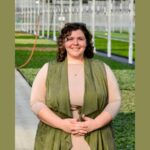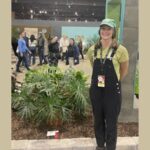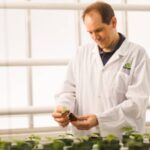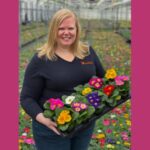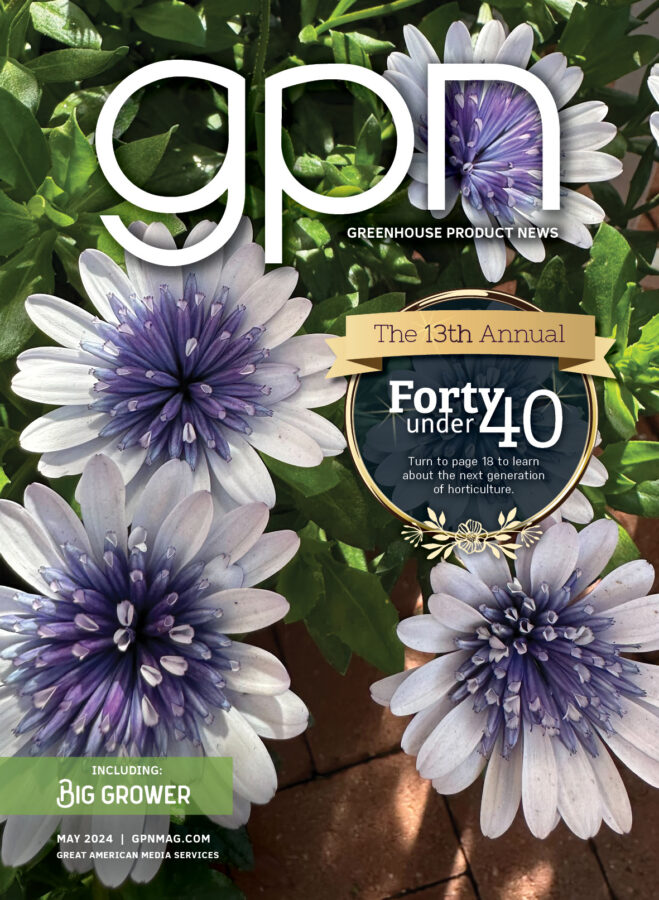A Closer Look at LED Efficacy
Arrays of light-emitting diodes (LEDs) have become the predominant type of fixture for new plant lighting installations. While LEDs typically have many advantages to conventional fixtures, they are primarily chosen because of their effectiveness at converting electricity into light that is useful for plants. For horticulture applications, fixture efficacy is quantified by the number of photons with wavelengths from 400 to 700 nm (the photosynthetically active radiation waveband) emitted by a lighting device divided by the input power to emit that light. This term is referred to as the photosynthetic photon efficacy (PPE) and is in the unit of micromoles of photons per joule (μmol∙J⁻¹).
Until 2014, the most effective horticultural LED fixtures were similarly effective as the most effective conventional fixture, the double-ended high-pressure sodium with an electronic ballast. Both had efficacies of around 1.7 μmol∙J⁻¹. The technology of LEDs has significantly advanced since then, as has the transparency and rigor of LED performance metrics specific to horticultural lighting.
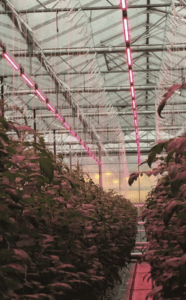
In October of 2018, the nonprofit DesignLights Consortium (DLC) established technical requirements for LED-based horticultural lighting products. A product that meets or exceeds these metrics ensures it is relatively energy efficient, long lasting, safe to use, and tolerant of growing conditions (e.g., high humidity). Among the criteria is a minimum PPE of 1.9 μmol∙J⁻¹, although because there is a 5% tolerance to this value, technically the minimum PPE is 1.81 μmol∙J⁻¹. This threshold value will likely increase in the next few years.
In the beginning of 2020, there were just over 50 LED products on the DLC’s horticultural lighting qualified product list (QPL) and the highest fixture efficacy was around 2.8 μmol∙J⁻¹. As we enter 2022, there are over 600 products on the DLC’s horticultural QPL and the PPE value ranges from 1.81 to 3.69 μmol∙J⁻¹. Therefore, although a product on this list can be considered energy efficient compared with conventional lighting fixtures, there is wide variation in product efficacy. Of these 600+ LED products, over half have a PPE of at least 2.5 μmol∙J⁻¹ but only about 6% have a PPE of at least 3.0 μmol∙J⁻¹. The PPE values of qualified LED products can be found online at https://qpl.designlights.org/horticulture.
While the efficacy of an LED fixture depends on several factors, the primary determinant is the composure of the individual diodes. Red LEDs are roughly 30% more effective than blue LEDs, and blue LEDs are about 20 to 25% more effective than white LEDs. Therefore, the most efficient fixtures contain 90 to 95% red LEDs and 5 to 10% blue LEDs (Figure 1). LEDs that contain mostly red with some white LEDs have slightly lower PPE values. While a fixture that includes white LEDs will invariably have a lower PPE value, the emitted light can improve the color rendering of plants and create a more pleasant working environment.
Additional factors that influence LED fixture efficacy include the drive current and operating temperature. A low drive current can increase fixture efficacy, but at the consequence of reduced light output. LED efficacy decreases as temperature increases, so effective passive (e.g., by heat sinks) or active (e.g., by fans or flowing water) heat dissipation is critical to achieve high efficacy as well as LED longevity. Finally, power supplies vary in efficacy and are typically less efficient when the spectrum, intensity, or both are tunable.
The efficacy of individual diodes and thus LED fixtures has increased dramatically the last several years, but future gains will likely occur at a slower pace. The reason is that the efficacies of the best-in-class LED fixtures are approaching their theoretical maxima. Compared to the most effective LED products on the market today, realistic estimates are that horticultural LEDs can increase in efficacy by around 25%, but that could take a decade.

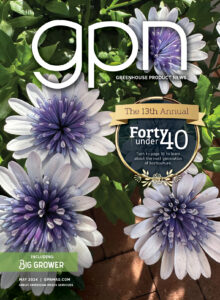
 Video Library
Video Library 










